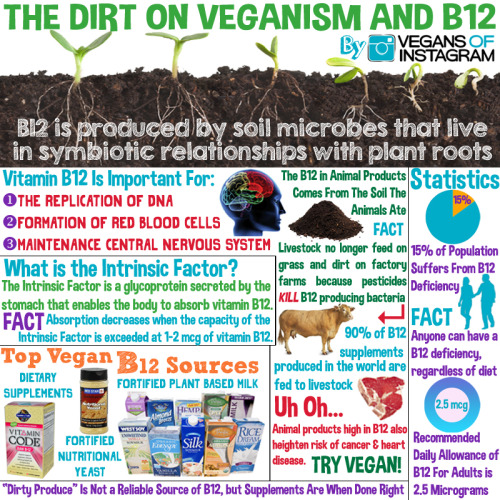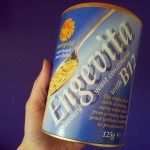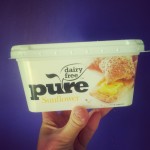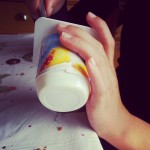
“Where do you get your protein?” is a question that vegans get asked so often that it’s become something of a standing joke in the vegan community, but perhaps the question they should be asking is “Where do you get your B12?”
If you’re vegan or are thinking of going vegan, it’s important that you pay attention to your intake of vitamin B12.
According to the National Institute of Health and Care Excellence (NICE) B12 deficiency is only rarely caused by inadequate dietary intake (inadequate B12 levels are more likely to be caused by problems with absorption) – but that’s no excuse for not making sure you’re getting yours.
What exactly is vitamin B12 anyway?
In very simple terms, B12 is a vitamin made by microbes (bacteria) that live in soil. Plant foods do not naturally contain vitamin B12, traditionally humans get the B12 they need by eating food contaminated with these microorganisms – either by eating plant foods that haven’t been washed thoroughly, or by eating animals that have in turn eaten food contaminated in the same way (eg, a cow grazing on grassland would naturally take in a bit of soil along with the grass that she eats). Animals can’t produce B12 themselves, and in today’s sanitized world, soil contamination makes for a highly unreliable source of B12 even for livestock, so cattle are fed B12 supplementation. For humans to get the B12 they need, they can either eat animals that have been fed supplementation (which obviously is not an option for vegans), or they can cut out the middleman and consume the supplementation themselves as a pill or in plant foods that have been fortified with B12.
In fact, there are indications that the B12 found in fortified plant-foods may be more easily absorbed by the body than the B12 found in animal products such as meat or milk.
What is B12 needed for?
B12 is vital for the formation of red blood cells, for healthy growth and child development, and to keep the eyes, brain and nervous system functioning properly.
What happens if I don’t get enough B12?
Getting enough B12 on a vegan diet really isn’t a problem, but not getting enough B12, whatever your diet, could leave you with big problems.
If you switch to a vegan diet and don’t consume sufficient B12 then at first you’ll feel fine, because the body generally stores around 2–3 mg of vitamin B12, which is enough to last for 2–4 years.
However, once those reserves start to run out you may develop symptoms of B12 deficiency, which include extreme tiredness (fatigue) and lack of energy (lethargy), breathlessness, feeling faint, headaches, pale skin, palpatations (noticeable heartbeats), tinnitus, loss of appetite and weight loss, a pale yellow tinge to your skin, a sore and red tongue (glossitis), mouth ulcers, pins and needles (paraesthesia), changes in the way that you walk and move around or in the way you think, feel and behave, disturbed vision, irritability, depression, and a decline in your mental abilities, such as memory, understanding and judgement (dementia).
B12 deficiency may also cause temporary infertility – and if you do conceive, B12 deficiency during pregnancy can increase the risk of your baby developing a serious birth defect known as a neural tube defect.
In short, B12 deficiency is not something you want to be taking any chances with!
So do I need to take a B12 pill then?
Not if you don’t want to. Some people find it easier to take a supplement, either every day or every week or just from time to time as a kind of safety net, but most people can get all they need from their diet provided they are careful to include enough foods fortified with B12.
What foods contain B12?
Many but not all brands of soya milk are fortified with B12, as are some brands of plant-based yoghurt and dairy-free margarine, and many breakfast cereals – check the labels on the brand you use, and consider switching to a fortified brand. Nutritional yeast flakes are also a useful source – again, check the label to make sure that it is fortified with B12. For a quick visual reference, the products pictured below are all (at time of writing) labelled as fortified with B12 – I’ll keep adding more pictures as I come across other fortified foods.
References and Further Reading:
The Vegetarian and Vegan Foundation’s Fact sheet on B12 (link to PDF – recommended reading for a very thorough and well referenced overview)
NHS Choices on Vitamin B12 Deficiency Anaemia
NICE on Vitamin B12 Deficiency
IF YOU HAVE REASON TO BE CONCERNED ABOUT YOUR B12 STATUS, PLEASE SEEK QUALIFIED MEDICAL AND/OR NUTRITIONAL ADVICE.


